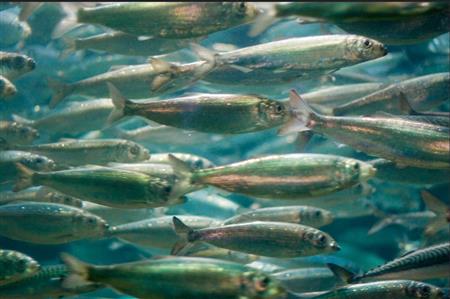
Pacific herring are a main food source for salmon. There is a threat to herring, and in turn, salmon, due to the loss of much of their natural habitat of eelgrass and kelp beds in recent years and the continued heavy roe fishery in the Salish Sea. To help the herring population grow, the Rotary Club of Pender Harbour started a project to drop fabric curtains off docks each spring as artificial spawning grounds for herring. A curtain can accommodate as many as 3 million eggs. With ongoing monitoring, volunteers carefully remove predators during the spawning season, such as crabs and starfish, allowing the roe to reach maturity within two to three weeks. -- photo by Jacob Bøtter
Inspired by this project, Sechelt Rotary joined the Pender Harbour club and organized the three other coastal Rotary Clubs of Sechelt Sunshine, Gibsons and Powell River to join as well. Each club has engaged volunteers from its community, including high school Interact members in some areas.
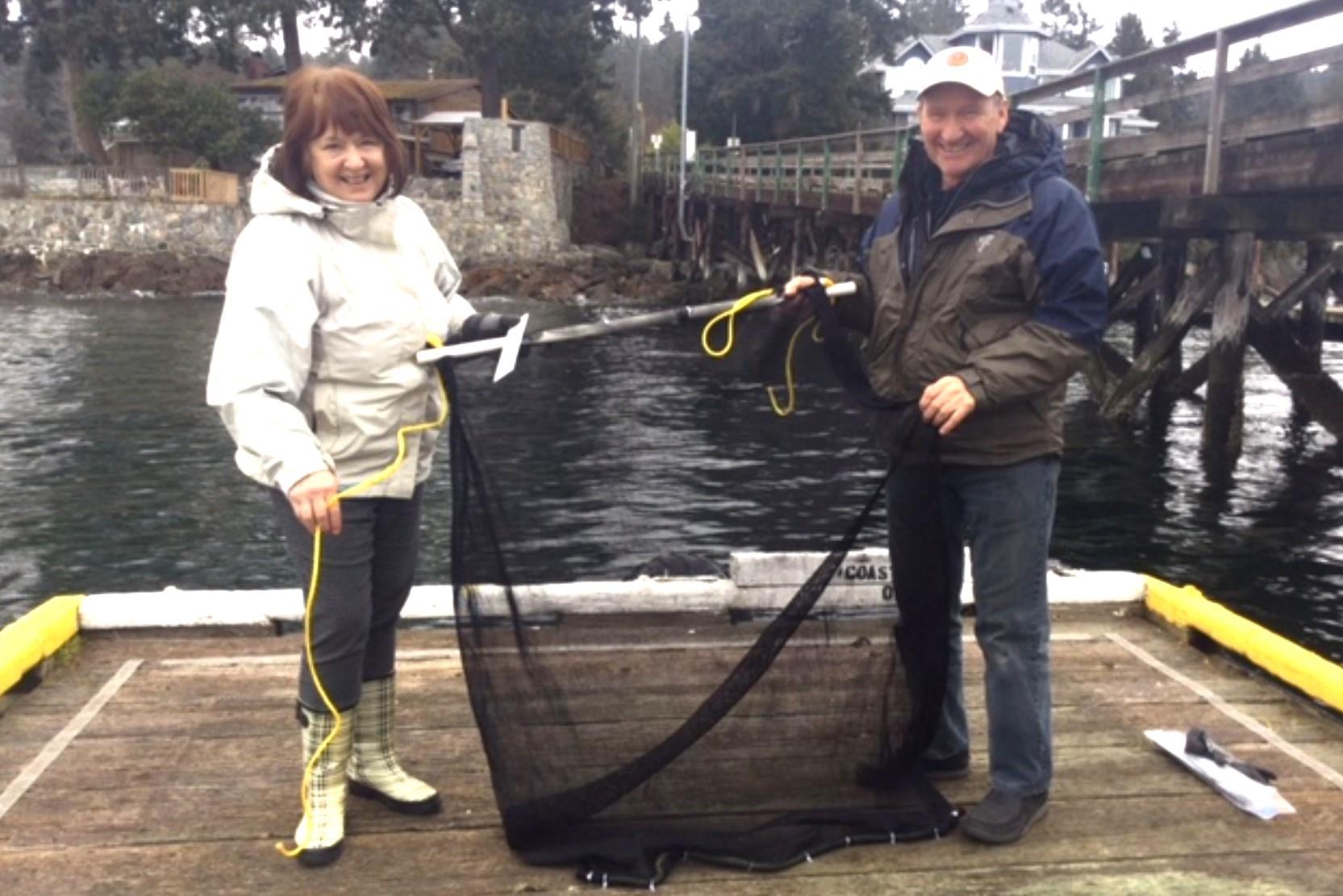 | 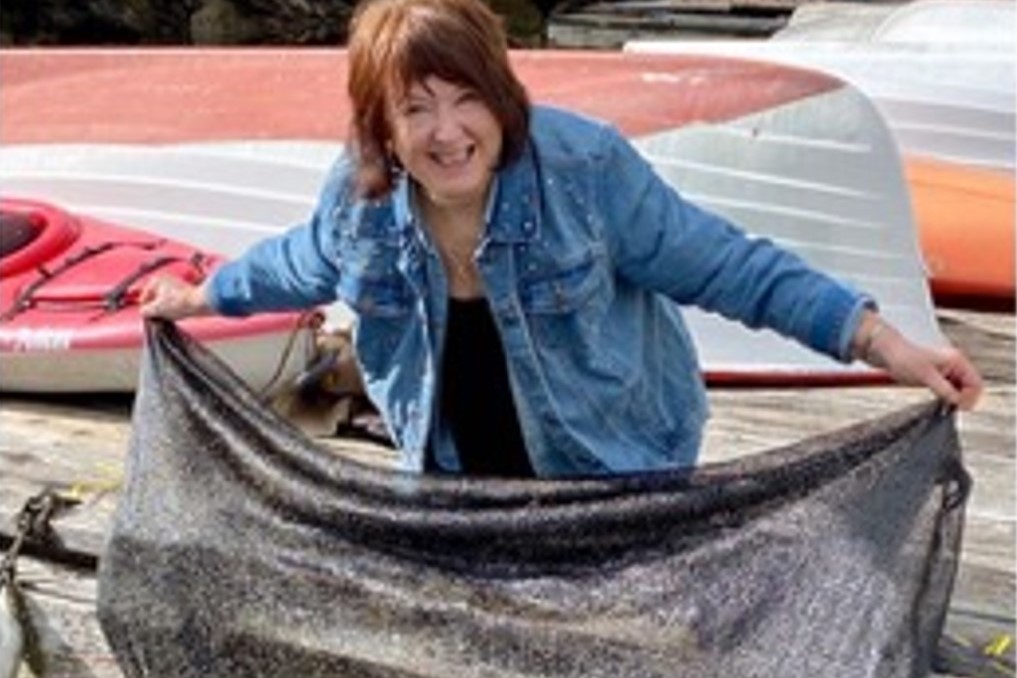 |
Margie Garrard with fellow Rotarian preparing to lower the herring curtain off the side of a dock | Margie shows a curtain with some herring roe attached |
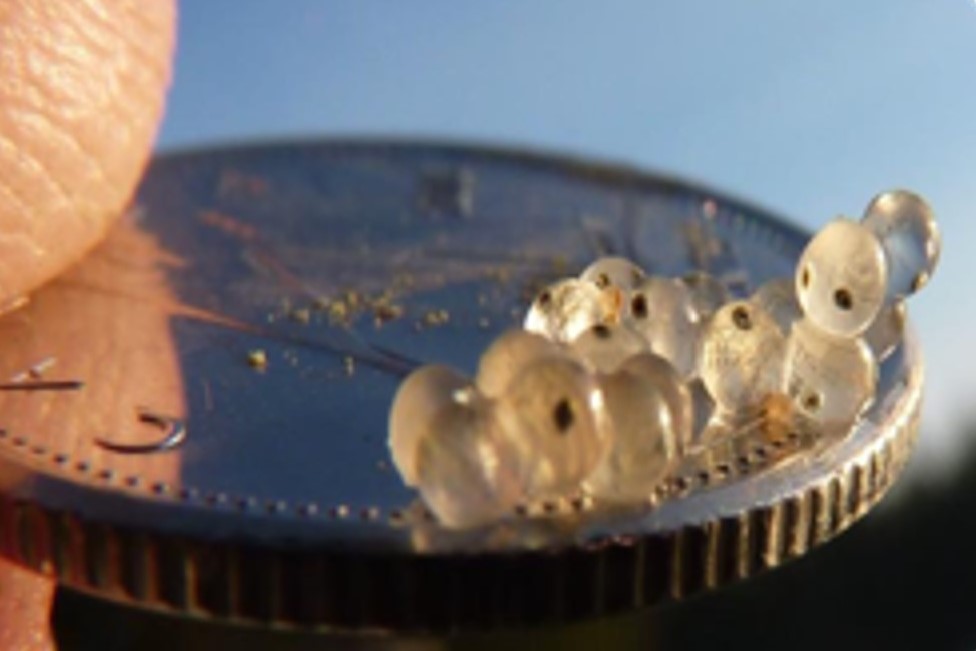 | 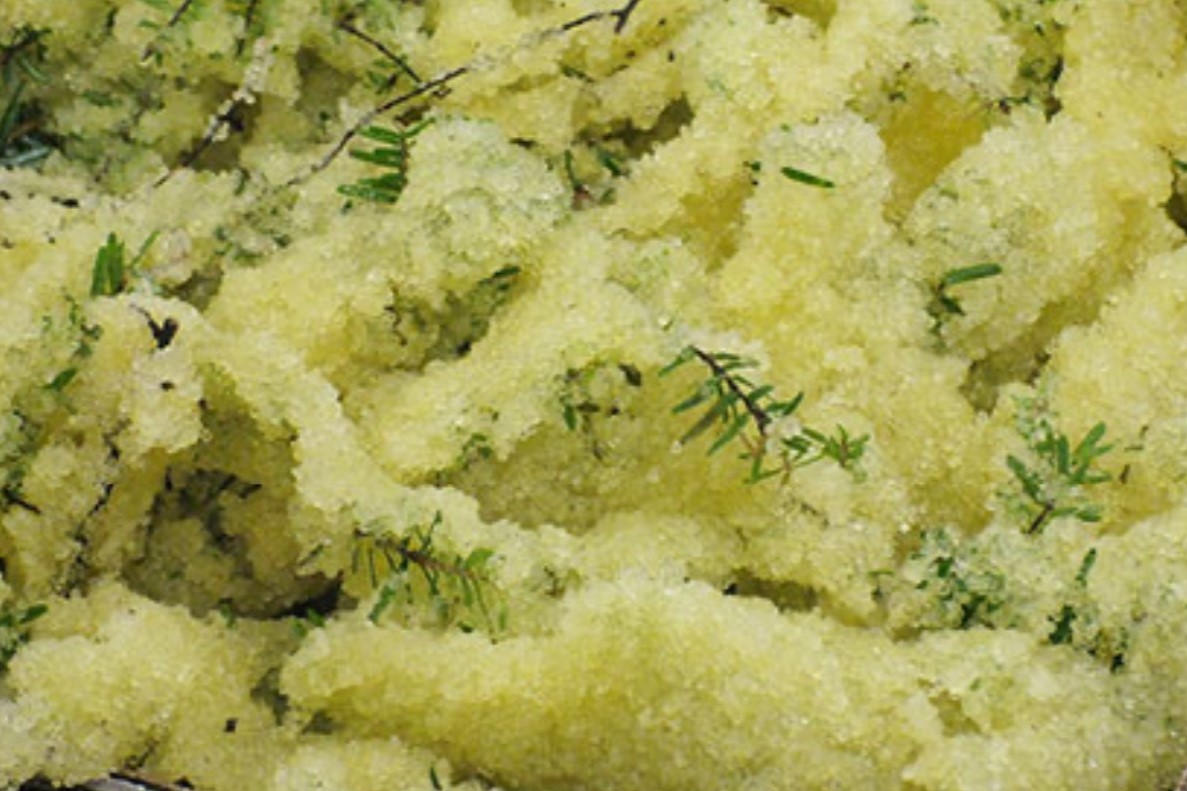 |
| Sample of herring roe, including their black eyes | Cluster of herring roe |
In 2023 the clubs experienced a single layer coating of herring roe at three locations. That's one small action towards helping to maintain balance and sustainability within the marine food chain, so the Pacific Salmon species may continue to receive the support it needs to survive. Not only is this support of herring contributing to the salmon it is also contributing to the orca population at the top of the food chain.
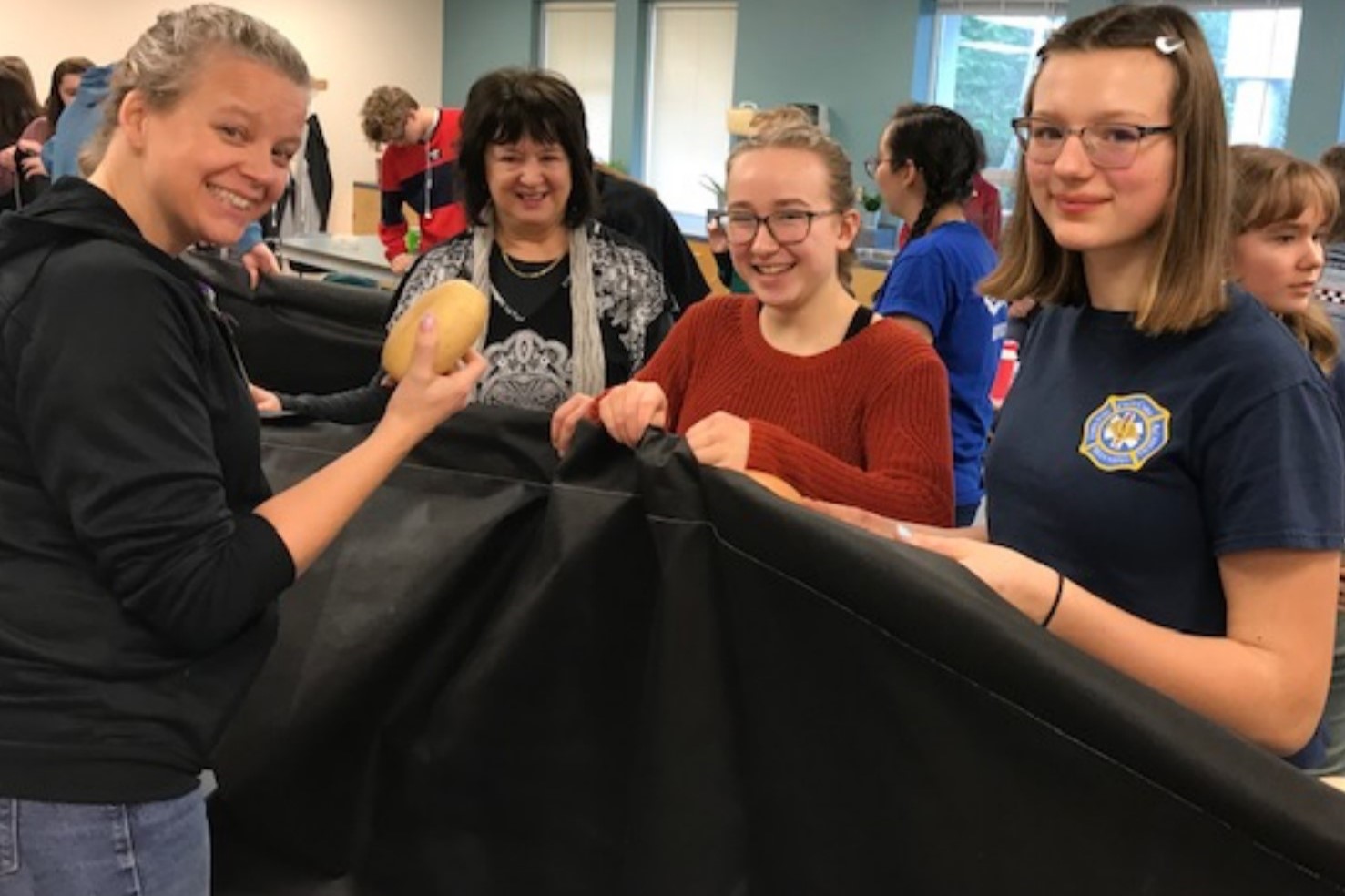 | 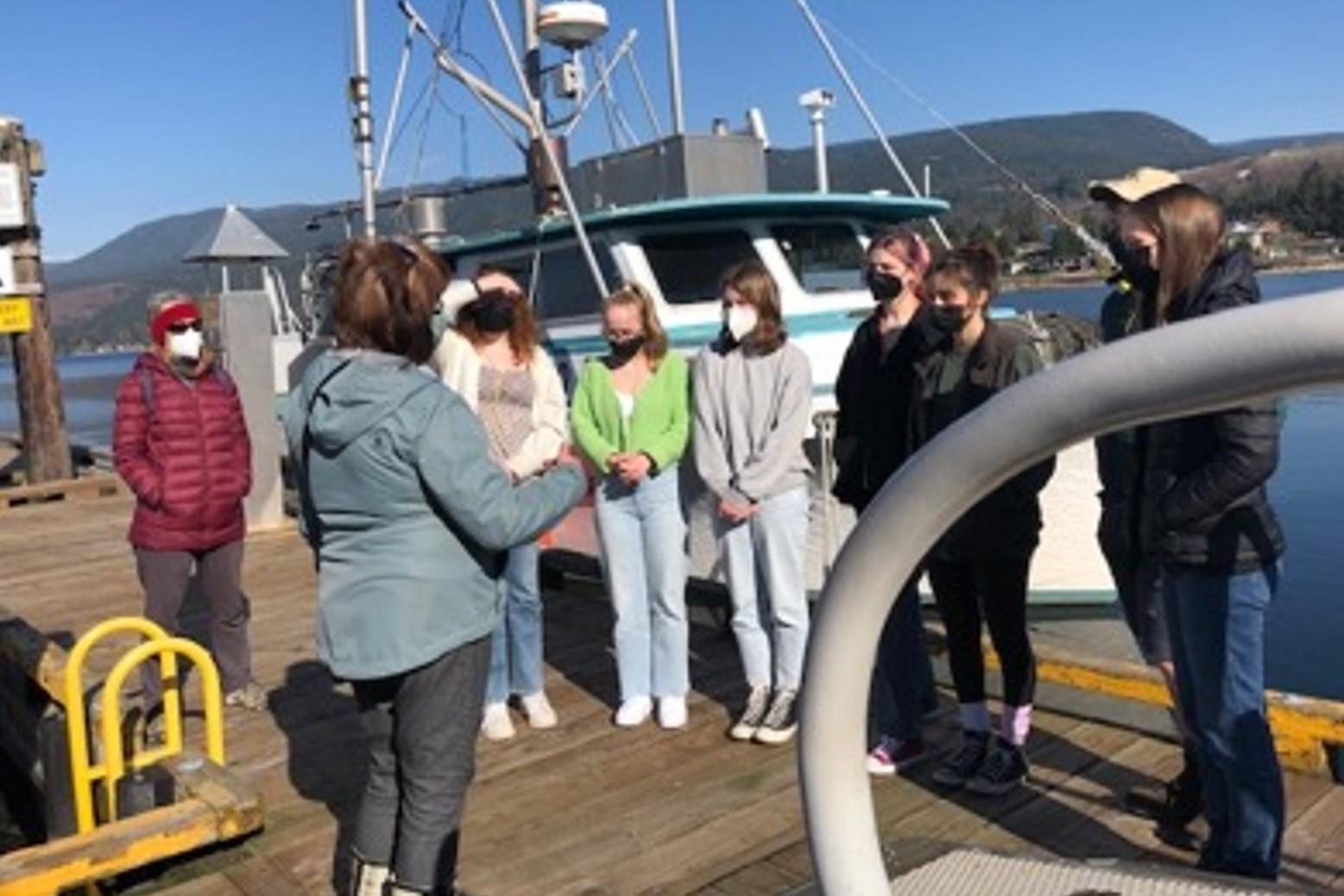 |
Rotarians Tanya Hall and Margie Garrard work with Interact club members at Chatelich Secondary School to prepare herring curtains | Chatelich Secondary Interact members learn about herring and the need for the spawning curtains |